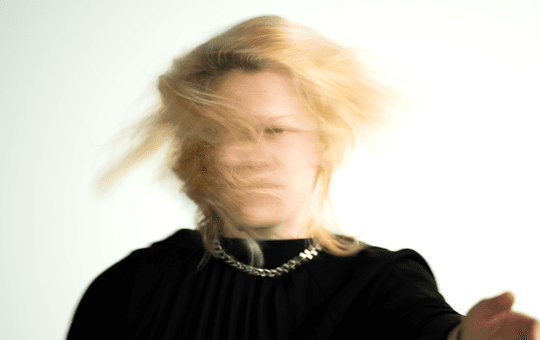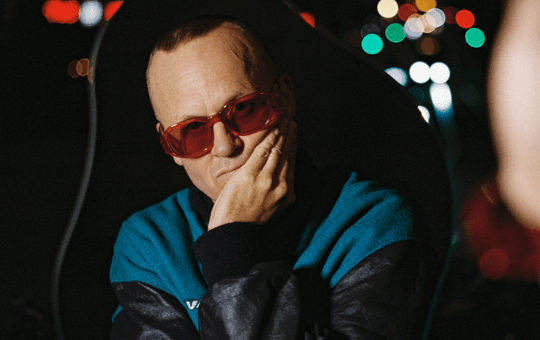Julia Kent - Character
Freedom is a vital thing in musical expression, and from label intervention, to listener expectations and assumptions, to the potentially enslaving confines of genre and style, its constriction can take many different forms. While Julia Kent’s third LP ‘Character’, released on The Leaf Label this week, will be pigeon-holed as being “modern classical”, such a claim could easily be reductionist – and complicated in relation to a musician who, having trained classically, “fled that world and never looked back”. Featuring just Kent, her cello, and the array of instrumentation and found sounds that are so integral to fully embodying ‘Character’, it’s an album packed with open-ended possibility. And through this free expression, as an inevitable by-product, even when ‘Character’ is reaching for dense layers of sound and building an orchestra of looped Julia Kents, this is a work of the kind of intimacy that could only be achieved by an artist really occupying a space of their own.
In an interview to accompany Dummy’s recent premiere of ‘Character’, Julia’s answers offered real insight to such expressivity. Citing the “very freeing” experience of writing alone at home, seeming all the more personal in the context of her wider setting of working in the vastness and bustle of New York City, Julia also pointed to the interconnectedness between herself and her cello: ”because for me, it feels like my voice”. It’s testament to the success of ‘Character’ that in her hands the cello – crucially taking centre stage as the album’s central “voice” – for the most part eases off the potential shackles of its antiquity to offer up real depth in emotion, mood and texture.
“Kingdom is perhaps ‘Character’‘s most surprising moment – with reverberating gasps of manipulated instrumentation that come off like a demented take on Kate Bush’s densest moments”
Much of this is captured through Julia’s looped playing, established from her previous solo efforts, and worked to dazzling effect on Transportation, offering an array of competing picked, plucked and bowed cello, building into a rich tapestry. It serves as interesting play on the idea for ‘Character’ as being “an exploration of an inner geography”; such stirring string music would often be played alongside images of rolling hills and airborne views of land racing by, but through Julia’s stated intent and the title, we’re led into a far more complex space of psychological transportation and internal discovery. In sparser moments, her instrument on Only Child becomes like a mother’s lament, and while some may find the later sections of closer Nina and Oscar teetering around sentimentality, there’s no question that its opening sustained cello matches Arvo Pärt for sheer sorrowful expression.
But ways to approach ‘Character’ do not end with attention on the cello – and it’s where these elements introduce snatches of electronic production that they are often most striking. Tourbillon’s shuffling rhythms are made all the more insistent through thin scatterings of hissing beats, which gel the piece together without overpowering it. Kingdom is perhaps ‘Character’s’ most surprising moment – with reverberating gasps of manipulated instrumentation that come off like a demented take on Kate Bush’s densest moments, it doesn’t feel a million miles away from dark ambience. And it’s in Salute’s wonderfully undefined use of found sound – presenting returning flourishes of what can be read as the lapping of ocean waves or kindling crackling in a healthy fire – that Kent demonstrates real growth as a solo artist. Contrast Transportation’s imagery with the clarity of the sample of rippling water on 2011’s Last Day In July, and you’re led again to Julia’s intriguingly intimate exploration of inner space – of how the mind can manipulate its own collection of “found” sound.
“There’s something to be commended in an artist who…can craft something classically inclined, but confident and purposeful enough to reach something emotionally and stylistically direct.”
“Modern classical” seems to exist in such an open-ended, post-post-everything space that “everything goes” would sell it short. This results in interplay at the fringes of formality, and the kind of atavistic, atonal openness recently expressed in Julia Holter, Laurel Halo and Daniel Wohl’s wonderful live performance at New York’s Merkin Concert Hall. But there’s something to be commended in an artist who – by building on her collaborations with avant-garde pop artists like Antony Hegarty – can craft something classically inclined, but confident and purposeful enough to reach something emotionally and stylistically direct. To achieve such directness and freedom of expression through the cello – to many listeners an instrument so closely tied to its past and cultural saturation – is no mean feat.
The Leaf Label released Julia Kent’s ‘Character’ on the 4th March 2013.













